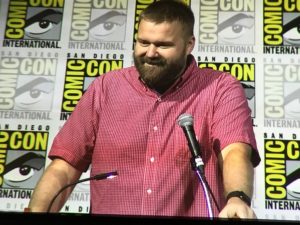
Robert Kirkman came to his spotlight Thursday at San Diego Comic-Con expecting to find a mob angry about Walking Dead’s end.
“Anything interesting happen lately?” he asked. “…I’m going to assume people are familiar with where the comic is at right now — it ended.”
Kirkman ran his usual spotlight panel, with no moderator and just a loose audience Q&A. He took the stage braced for aggressive questions from a fan base that felt spurned or cheated or even furious because of Walking Dead’s end.
But — surprise, surprise — nobody was angry, at least none of the dozen or so-plus fans who came to the mic with questions. Instead, fans quizzed Kirkman about the wider world left in the wake after the finale, the fate of their favorite characters, and whether he’ll ever continue the comic.
I’ll just get right to it: Kirkman’s answer to that last question was a firm… I don’t know, but I made sure that I could if I wanted to. One fan asked if he’d ever go back and explore the past or alternate realities, and he shut that down right away, saying one thing he liked about Walking Dead (the comic, anyway) is that it was a complete and linear story.
However! Kirkman confirmed that he did a possible way to continue that complete and linear story, and that way’s name is Negan.
“You know, Negan is alive,” Kirkman said. “I think that’s a cool tidbit. He’s still out there theoretically living in that farmhouse. There might be a story to be told there. It’s possible that may be my escape hatch if my career ever takes a nose dive.”
The Walking Dead’s end left Negan unseen, with other characters bringing provisions to a house where he was last seen (and where his wife is buried), noting that he must be alive because someone was taking the provisions.
“There’s an option there,” Kirkman said. “I’ve nearly said too much. I regret answering that question.”
He also elaborated on the final issue, or at least a version of it that he toyed with that might have seemed familiar to readers. Part of Walking Dead’s end involved a brief trial.
“My original plan was to have much more courtroom drama,” Kirkman said. “I was like, we could even have some of the characters come in in the thing, and then I was like, that’s just the Seinfeld ending.”
In terms of the world left in the wake of Walking Dead’s end, Kirkman painted a (relatively) bright picture of it.
”It’s a world where people appreciate things more,” he said. “It’s a world where people come together and work to solve problems instead of picking problems to fight over.”
Kirkman also touched on one of his favorite talking points, one that dates back more than a decade: his strong preference for creator-owned work over work-for-hire with longtime superhero comics characters.
“The fact that there was a TV show and a video game, you’d think would make it impossible to end The Walking Dead,” Kirkman said, “but I still had the freedom and control to do what I wanted.”
So yeah, nobody went to the mic and was like, what the hell Kirkman, you did something creatively that made me want to fight you (even a retailer thanked him for generating excitement in the industry!). Which, sadly, is sometimes a thing within culture these days (and has been for a while, really). But that doesn’t mean Kirkman escaped from his spotlight panel unscathed.
One fan thanked him (as did many others), noting that it is to date the only comic book that she’d ever read.
“You should read more,” Kirkman said.
He then rattled off more than a half dozen other comics projects that he’d worked on, suggesting she pick those up.
“I don’t know what any of that is,” she responded.
Stricken (and, let’s be real, clearly gut-punched in a deep emotional way), Kirkman hung his head, (the bright and uncomfortable lights of the stage framing him at the mic, as his fame and dreams and many accomplishments ran through his mind, leaving there for that infinite moment alone).
He looked back up, asking the crowd, himself, and the universe at large, “Why did I end that book?”


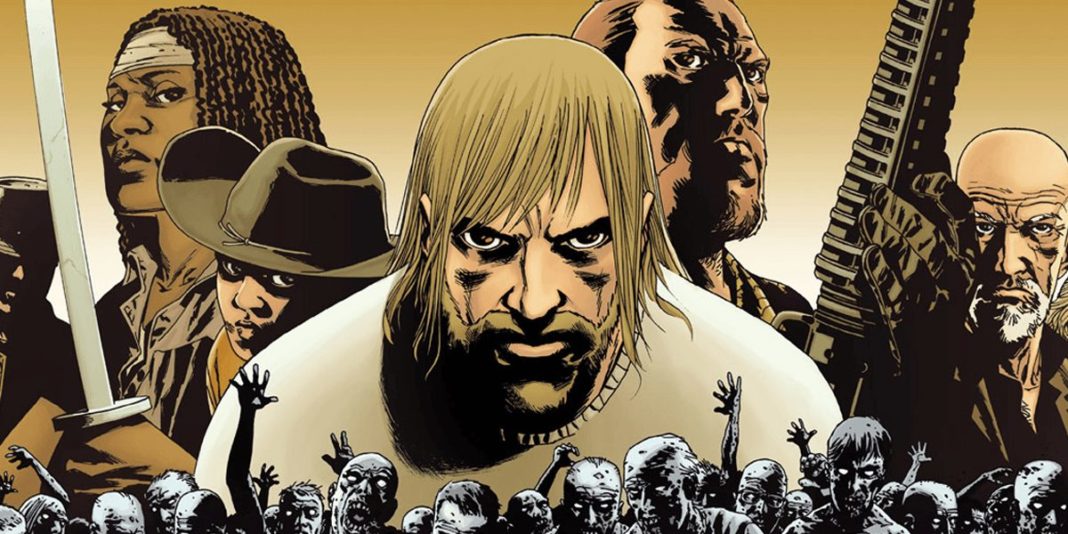
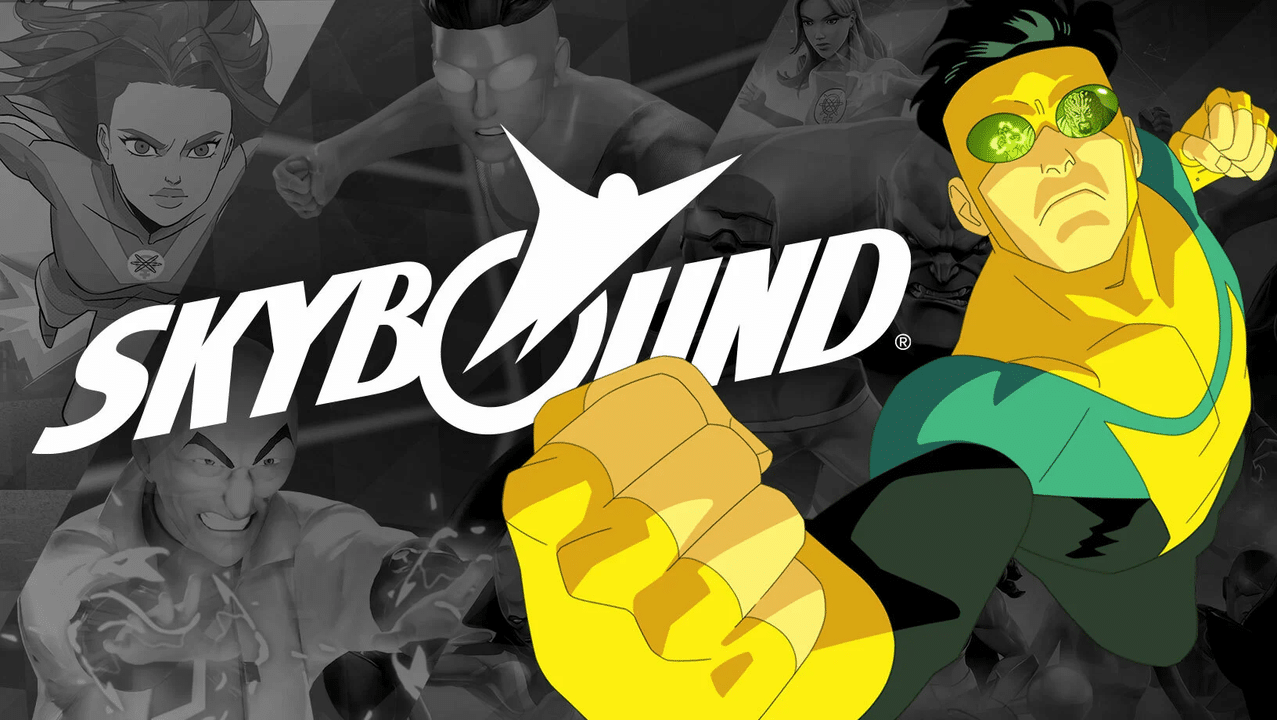
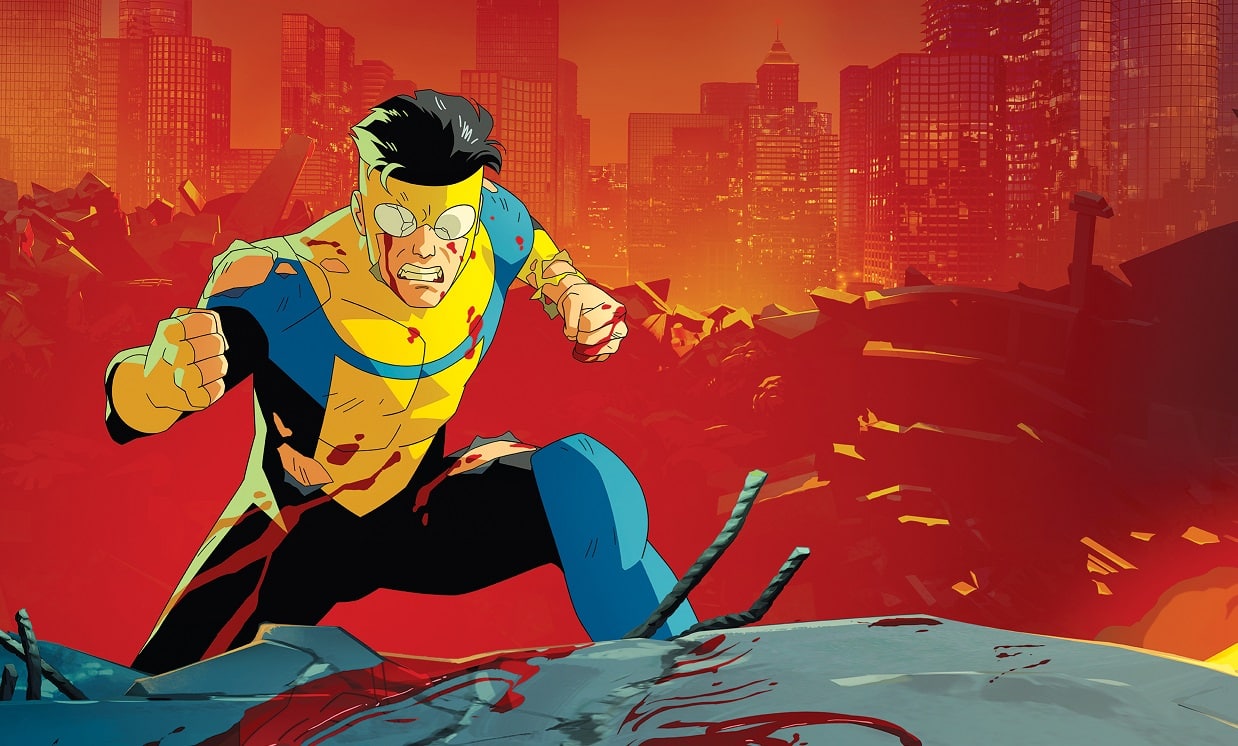
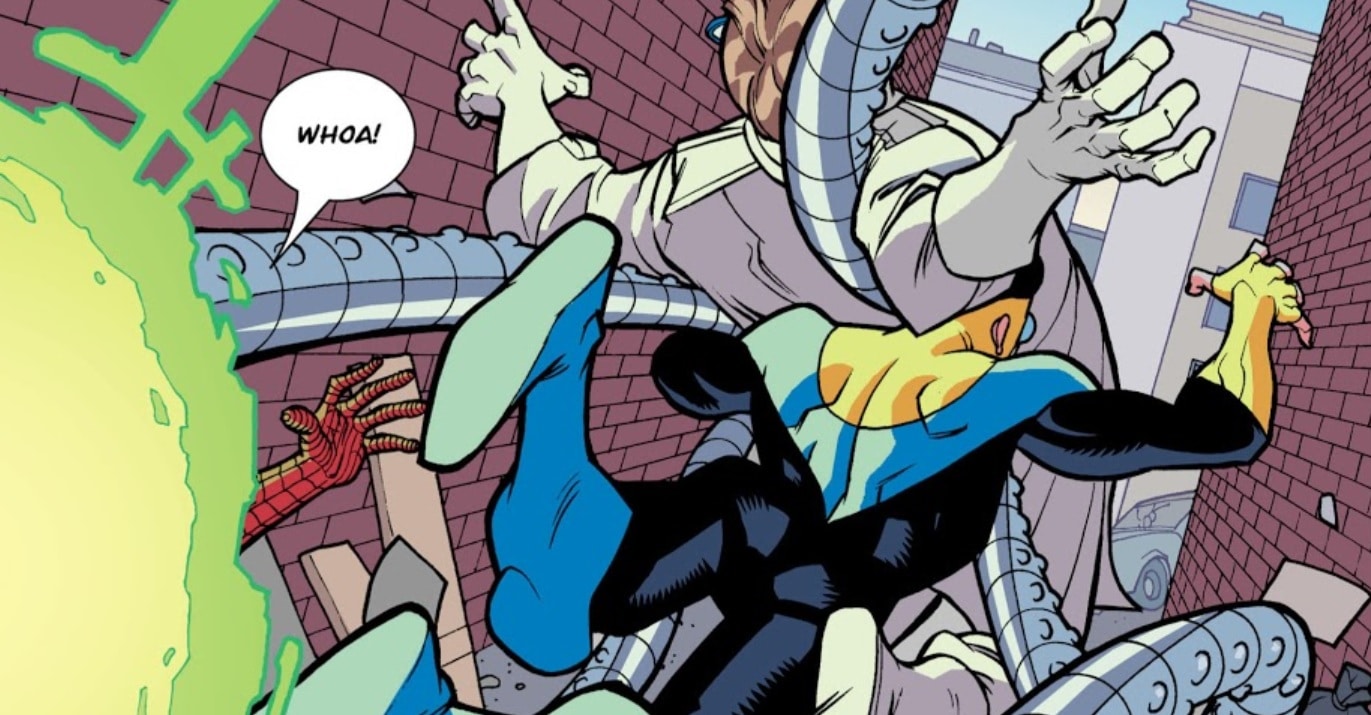



Comments are closed.